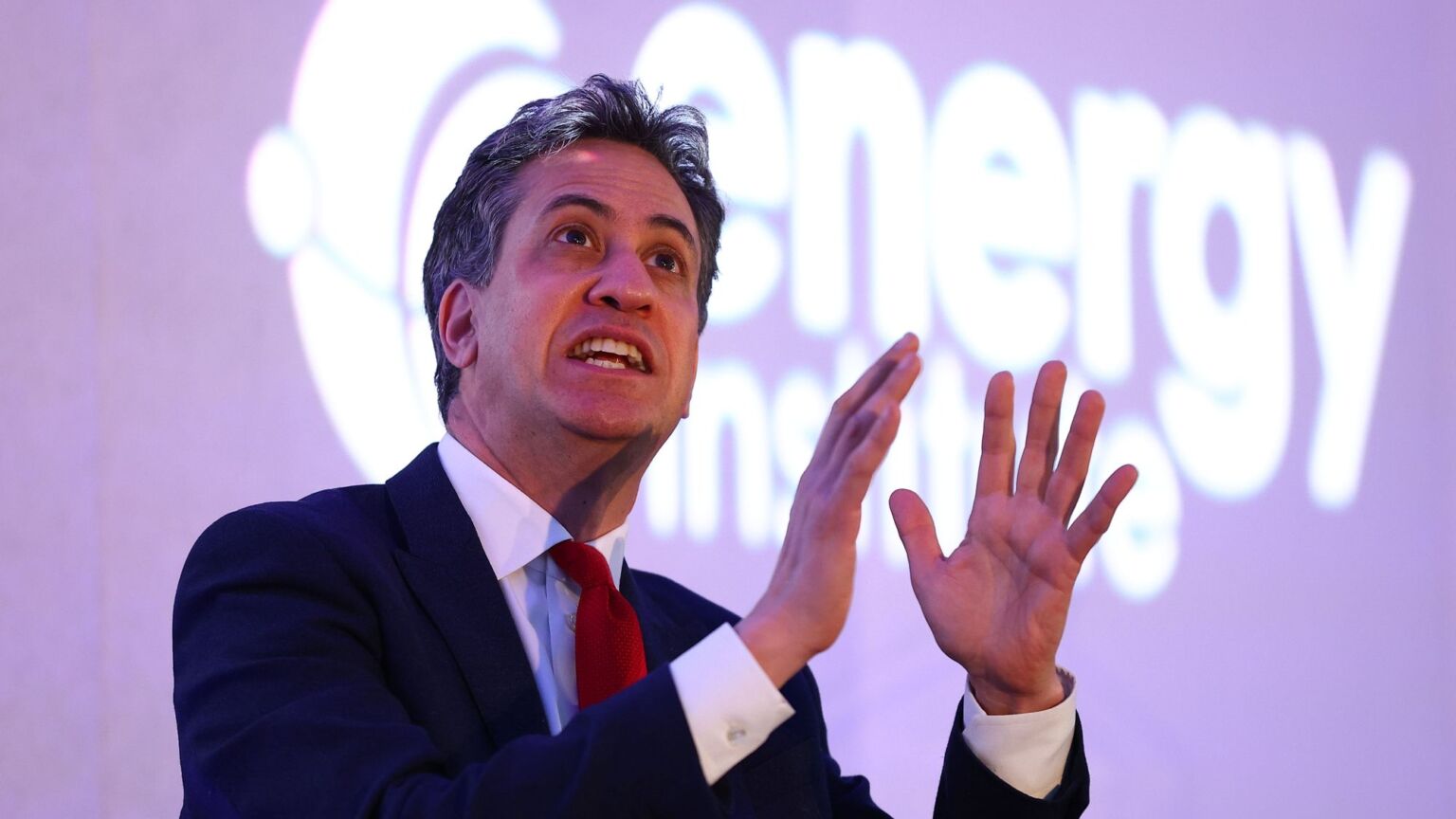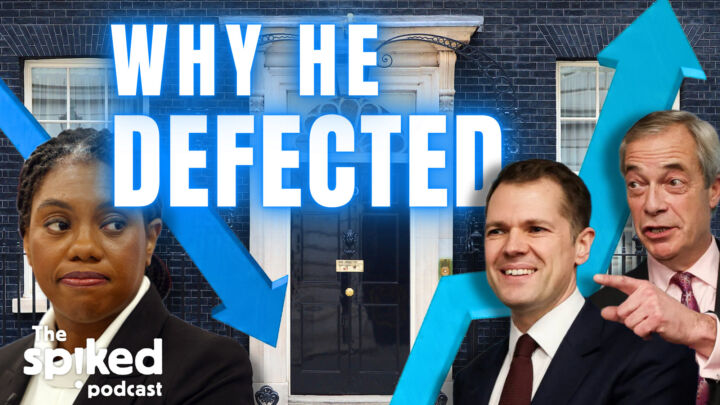Ed Miliband is why you can’t afford your energy bill
There is now no denying the disastrous fallout of Net Zero.

Want unlimited, ad-free access? Become a spiked supporter.
Before the 2024 UK General Election, Labour’s incoming energy secretary, Ed Miliband, made two major pledges. One was to make the UK’s electricity grid carbon-free by 2030. The other was to lower household energy bills by an average of £300 a year. The snag is that these two promises were entirely contradictory. Swapping reliable fossil fuels with unreliable renewables was always going to lead to higher bills.
This iron law of energy policy has been confirmed today as Ofgem has announced that the energy price cap for autumn will rise by two per cent, raising the average household bill to £1,755 a year – a hike of £187 since Miliband took charge of our energy supplies.
There is no doubt that Miliband’s mad dash to Net Zero is to the blame for recent price increases. As Ofgem notes in its press release, wholesale energy prices – ie, what your energy supplier pays – are actually down. And gas prices are as cheap as they were back in 2015. But this is not reflected in your bill. What is driving the increase is greater so-called grid-balancing costs – that is, the cost of ensuring supply meets demand and is consistent. This is a far harder task when renewables are in the mix.
The key problem with wind and solar is that they’re intermittent and unpredictable. If there’s not enough wind or sunshine, then backup sources of energy need to be sourced rapidly to make up the shortfall – usually at great expense. Too much wind and we have to pay wind farms to switch off their turbines or the grid will be overloaded. The cost of all this folly is expected to either double or triple as we reach Miliband’s sunlit, wind-powered uplands of 2030.
Worse, higher household bills aren’t even the full extent of it. Thanks to Net Zero, Britain’s industrial energy costs are the highest in the developed world. This is proving catastrophic for heavy industry, with sectors from steel to cars to chemicals shutting factories at an alarming rate. Decarbonisation is leading to rapid deindustrialisation.
Yet the Labour government remains as deluded as ever. On the media rounds this morning, minister Nick Thomas-Symonds reaffirmed Labour’s pledge to cut bills by £300 by 2030, oblivious to the consequences of his government’s carbon targets.
Ed Miliband’s green dream is fast becoming a nightmare for the rest of us.
Fraser Myers is deputy editor at spiked and host of the spiked podcast. Follow him on X: @FraserMyers.
£1 a month for 3 months
You’ve hit your monthly free article limit.
Support spiked and get unlimited access.
Support spiked – £1 a month for 3 months
spiked is funded by readers like you. Only 0.1% of regular readers currently support us. If just 1% did, we could grow our team and step up the fight for free speech and democracy.
Become a spiked supporter and enjoy unlimited, ad-free access, bonus content and exclusive events – while helping to keep independent journalism alive.
———————————————————————————————————————————–
Exclusive January offer: join today for £1 a month for 3 months. Then £5 a month, cancel anytime.
———————————————————————————————————————————–
Monthly support makes the biggest difference. Thank you.









Comments
Want to join the conversation?
Only spiked supporters and patrons, who donate regularly to us, can comment on our articles.